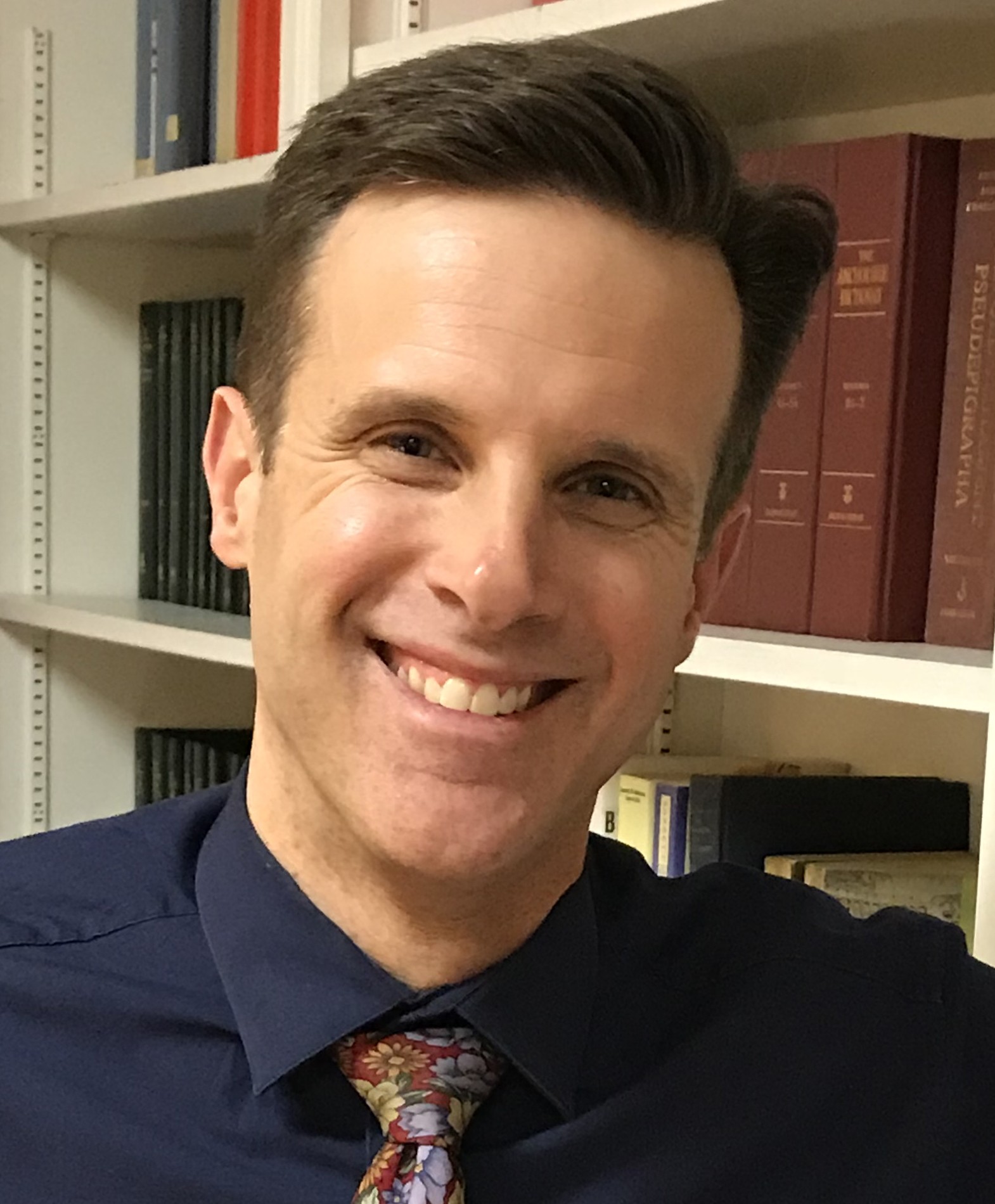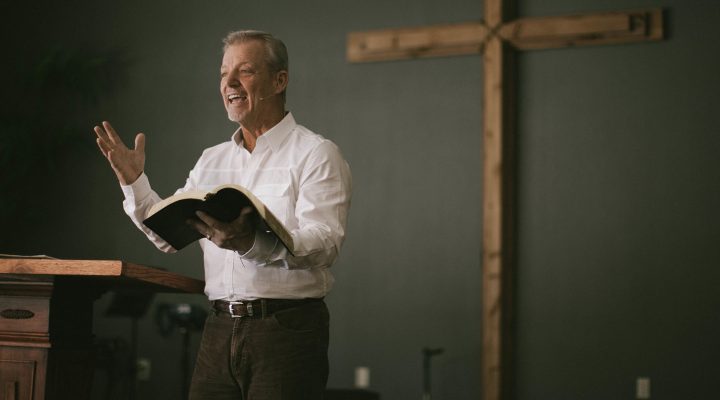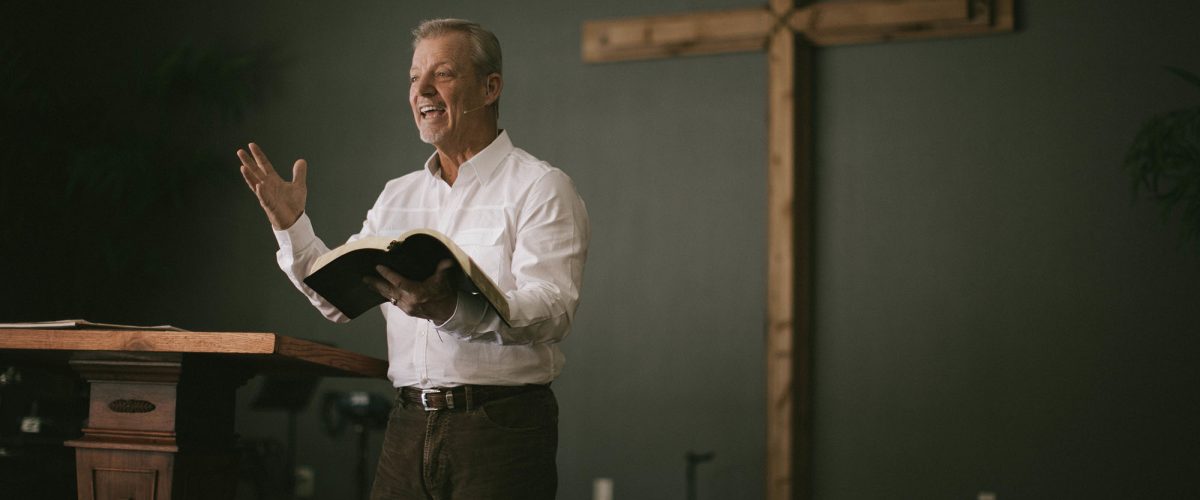I have been engaged in the preaching task since I was 20 years old. That means I have been at it for 31 years.
Preaching is my lifestyle. There is always a biblical text and a developing sermon in my head. The preaching task is easier than it was in those early years. I know a lot more Bible now. I no longer panic when an idea about what direction to take with a biblical text does not come quickly or with ease. I now know that an experience, or a news story, that will not occur until Thursday will be central to that Sunday’s sermon. I just wait and anticipate, wait and ponder, wait and study when ideas do not spring forth immediately.

Paul R. Gilliam III
In the beginning years, when I preached to Crest High School students in the school’s little theater in Shelby, N.C., and then to the congregation of Calvary Baptist Church in my role as associate pastor, and finally to the congregation of Henrietta First Baptist Church as their pastor, I read a lot about preaching.
Of course, I digested Fred Craddock’s book Preaching. While Craddock did it extremely well, purely narrative preaching never was my style, although I tried. I read Thomas Long’s The Witness of Preaching. I absorbed, and still reflect upon, John Claypool’s 1979 Yale University Lyman Beecher Lectures, The Preaching Event. I also read, and learned from, Hadden Robinson’s Biblical Preaching: The Development and Delivery of Expository Messages.
During those days, I was particularly interested in what others had to say about preaching from a full manuscript, from notes or from nothing at all. I heard a preaching professor insist that sermons must be preached from a full manuscript. As this gentleman was a very good preacher, I decided to give it a try. It was a miserable experience. I soon went back to preaching my 20- to 23-minute sermon from a half-page outline as I continue to do today.
“I cannot remember the last time I read a book or article on preaching.”
I cannot remember the last time I read a book or article on preaching. While there is one Presbyterian preacher I listen to from time to time, I do not listen to his sermons to become a better preacher myself. I listen to his sermons because they nourish me. Thank you, Christopher Edmonston of White Memorial Presbyterian Church in Raleigh, N.C.
These days, I just preach weekly; I simply do my thing. As a result of carrying out the preaching task for 31 years now, my appreciation for the calling has grown — especially so at this phase in my life as pastor to a local congregation.
Much of my time as a pastor is spent with projects not explicitly Jesus related. So much so that I recently, with the approval of our deacons, formed a Christian Discipleship Team. The goal of this team is to deal with explicitly Jesus stuff such as worship, Sunday school, outreach and discipleship opportunities. Even so, most of my conversations still center on budgets and personnel, sanctuary and Fellowship Hall renovations, and fixing toilets and boilers.
Like many, I preach to fewer and fewer people. Although our church remains strong, our Sunday morning worship participation number has decreased 18% since 2019. Oddly enough, this decrease in worship participation has increased my appreciation for the Sunday morning sermon.
Sunday morning is the only time I know I will have a conversation with members and visitors of the First Baptist Church of Ahoskie explicitly about Christian faith. I will not talk with them about the scores of last night’s games, nor their grandchildren, not even their health conditions. These issues will certainly be embraced pre- or post-worship. When I preach, however, the topic, in one manifestation or another, is God revealed to us in the person of Jesus the Christ.
I have moments in the pulpit where I say to myself, “Paul, this is such a privilege, enjoy yourself.” And I do. Because fewer and fewer people submit themselves to regular worship participation, preaching is as holy, even more so, than ever before.
“Because fewer and fewer people submit themselves to regular worship participation, preaching is as holy, even more so, than ever before.”
In my experience, only a handful of people remain regular in their worship participation — say missing less than 12 Sundays a year. Thus, only a handful of people hear weekly preaching as is needed. I see a lot of people once every three weeks, or once a month, or once every six weeks on Sunday mornings. Some are even less frequent. Even though I preach to fewer and fewer people, I never know just who will show up on any given Sunday. Therefore, perhaps more than ever in my ministerial career, I do my best to provide engaging preaching from our pulpit.
I sense acutely the holiness of preaching. Just as most people do not drink enough water, so most people do not hear enough engaging sermons. I am moved these days when I make eye contact with someone while preaching and I sense they are with me. The church competes with so much and it feels like we are losing. America’s god is some sort of ball — a football or basketball or baseball or softball or soccer ball or tennis ball — or some other sort of entertainment. In the circles I walk, many folks have the resources to travel and even buy a second house at the beach or the mountains.
As a pastor in these challenging days for the church, I try to adjust my thinking even as I hold to my core conviction about the centrality of the church in the life of the Christian. For example, while Sunday morning worship is the big event of the week for me, for others the big event might be Wednesday night choir or children’s activities. In other words, people connect with the church through avenues other than Sunday morning worship. And some people prefer these other avenues to Sunday morning worship.
Likewise, instead of a focus on the 18% fewer people in our sanctuary since 2019, I simply try to focus on who is in our sanctuary. And I give thanks to God that these folks, on this Sunday, are in conversation with me about the good news of Jesus the Christ.
Paul R. Gilliam III serves as Pastor of First Baptist Church of Ahoskie, N.C., as well as director of the religion program at Chowan University. He is also the author of two books: Ignatius of Antioch and the Arian Controversy and the forthcoming William Whiston and the Apostolic Constitutions: Completing the Reformation.
Related articles:
The air of gathered worship: A 12-Sunday challenge | Opinion by Paul Gilliam
Lilly Endowment launches initiative to strengthen Christian preaching
Preaching on racial justice was much more difficult without in-person worship, pastors say


